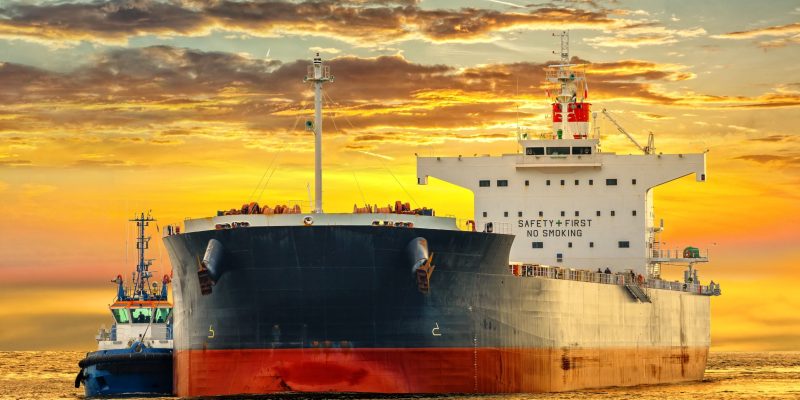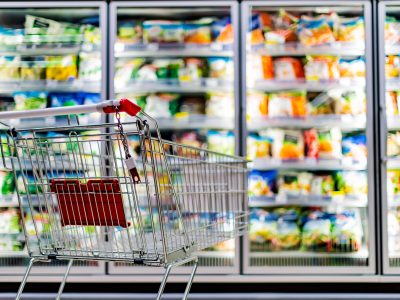
Crude oil demand in China has been a hot topic of discussion for most of 2024 with fuel consumption likely to remain subdued in the coming months as well.
The primary reason for lower demand in China has been declining processing rates in refineries and the growing fleet of electric vehicles.
China is the world’s largest importer of crude oil and the second biggest economy after the US.
Lower demand in China has weighed heavily on global consumption, while oil prices have also struggled to hold on to meaningful gains.
According to major energy organisations, oil supply is expected to overtake growth in global oil demand, which is expected to keep prices subdued.
Meanwhile, with the US President-elect Donald Trump winning the 2024 election, a layer of uncertainty hangs over financial and commodity markets.
Trump is likely to pursue stricter compliance with sanctions on Iranian crude exports, which could have an impact on China as it is a major buyer of Tehran’s supplies.
Invezz spoke to Emma Li, senior market analyst at Vortexa, to understand more about the current state of demand in China and how shipments from Iran may be impacted after Trump’s win among other things.
Following are the edited excerpts from the interview:
Invezz: What is the current scenario in terms of China’s domestic oil production?
I think China’s domestic production is more or less stable. Actually, on a year-on-year basis, it increased a little bit., but because China largely relies on imported crude, I feel the majority of the crude processed is still imported.
The fall in imports is mainly because the processing rate at refineries declined.
So generally for many refineries, especially the smaller private ones, their utilization rates or the refinery runs are quite low at the moment.
Iranian crude exports to China to continue
Invezz: Do you see any impact on Iranian crude exports to China with Trump soon to be back at the White House?
This year, because Chinese oil refiners have been facing narrowing refining margins, they have turned to discounted crude just to improve refining margins.
So, despite the US tightening sanctions and adding more vessels to the blacklist, we still see China’s Iranian crude imports rising 30% on a year-on-year basis till October.
We don’t have the full November figures yet.
We believe that this will continue to be the case in the coming months.
Currently, I don’t think Trump’s return to the White House is stopping the flow or adding any concerns. But of course, with more sanctions on vessels, there will be increasing demand for that fleet or ship-to-ship transfers.
That will make the whole business a little bit more troublesome, but it’s not going to reduce China’s volumes.
Invezz: Do you see China retaliating with sanctions of its own on the US in case Trump makes it difficult for Iran to export its crude oil?
It is very difficult to say because we haven’t seen, or we are yet to see what new rules or new sanctions Trump is going to put on the whole business.
So far, we know that the sanctions are mainly on the ship owners or the oil itself. So, the Chinese buyers, only purchase delivered cargoes.
This means that they are not in charge of the shipments or the loadings. They only receive the oil in China, so I don’t see much of an impact.
Additionally, from the Chinese side, they don’t care about the sanctions that much.
For example, if a Chinese vessel is on the sanction list, usually the buyer would ask the traders to transfer the cargo onto the non-sanctioned vessels so that there won’t be any issue.
Poor margins hurt refineries
Invezz: What is the main reason behind low processing rates in Chinese refineries?
I think there are multiple reasons. On one hand, your overall refined product export quotas remain tight. This means the big refineries can’t sell more motor fuels overseas.
And for domestic demand, of course, the slowing macro economy is eating into the fuel demand. For example, your overall diesel demand is not so great compared to past years.
And even for the passenger fuels, of course, jet fuel demand picked up due to the reopening of the economy after the COVID-19 pandemic.
But gasoline demand is largely impacted by new EVs, which are replacing those fossil fuel cars.
Gasoline demand to peak in China
Invezz: What kind of long-term impact do you see on fuel demand in China due to the rising fleet of EVs?
There are calculations and expert anticipation that China’s gasoline demand is likely to peak either this year or next year. Meaning that going forward, overall gasoline demand or consumption should decline.
But I think for the diesel side, because currently, we are kind of at the bottom or at least at a weak period, I think there is still room for diesel demand to sort of recover.
But again, we have to see how the liquefied natural gas (LNG) truck demand is going to compete with diesel trucks. So far, we don’t see LNG replacing diesel trucks as fast as EVs replacing gasoline cars because there’s no subsidy from the government for the LNG trucks.
The long-term vision for the government is to limit oil consumption. It also wants to reduce dependence on crude imports, so domestic production, pipeline gas or imports through the land other than seaborne crude is considered better choices.
The government is encouraging more EVs over gasoline as it wants to control carbon emissions and reduce air pollution.
Invezz: What is your outlook on overall crude oil demand in China?
So, on a year-on-year comparison, 2024 waterborne crude demand is more than 5% down.
And next year, the overall crude demand will probably be kind of bad; not much of a change.
For the first quarter or the first half of 2025, we do not expect much of a recovery in crude oil demand. We can only expect significant recovery in the second half of next year.
But, compared to 2023, it’s (oil demand) still kind of low or moderate levels.
Phasing out polluting and old refineries
Invezz: What is China doing with natural gas pipelines and old oil refineries?
The government is building more pipelines between China and Russia. I think the oil majors also signed more term contracts with the major LNG suppliers. I don’t have the exact figure, but it’s happening in the market.
For the oil side, if you just look at the new refining capacity in China, either the newly added ones or the upcoming ones, they are all integrated refineries.
Integrated refineries are those which use the most updated technology.
They are petrochemical-focused, so they do not just produce gasoline, diesel, and jet fuel, but they are heavily into petrochemicals.
So basically in China, the government is trying to phase out those very old high-polluting refining units and replace them with newer ones.
Invezz: What are your expectations from the ministerial meeting of the Organization of the Petroleum Exporting Countries and allies on Sunday?
I don’t know about OPEC’s decision, but I think the Chinese, especially the oil majors will try to maintain a good relationship with major oil producers like the OPEC countries.
As for the term contracts, like the Saudi term contracts, China will definitely try to maintain that.
Even for those new refining capacities, I know that they are in negotiation with some of the bigger oil producers to come up with some sort of long-term supply agreement.
So, these volumes are considered as the base load for China and the government would want to secure these supplies.
The post Interview: Gasoline demand in China may peak in 2025, says Vortexa’s Emma Li appeared first on Invezz











